- |
- |

Recently, I took a break from reading after finishing up a significant stint of study. But my itch for reading has returned, and before I got started, I thought I’d try getting stuck into something different.
I’ve been hungry to learn something new, but wanted to make sure it could be something outside my comfort zone to shift my headspace into a different direction.
So I decided to ask the team for their reading recommendations.
My question to them was this—give me something to read that will help me better understand your work and help me become better at my job.
In true August form, the team went above and beyond.
I’ve captured their list in this article, it’s too good not to share. I was going to try and categorise books, podcasts, and resources, but instead, I’ve kept the reasons why the team think you (and I!) should read, listen to, and absorb these pieces.
Here goes.
***
You Don’t Know Js: Up & Going by Kyle Simpson.
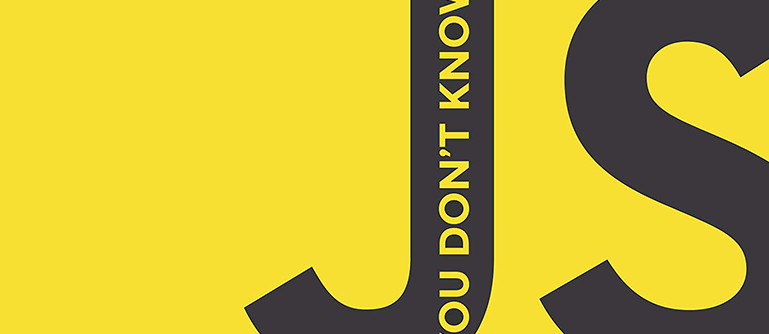
Get it here.
Let’s kick this list off with a book on tech. This installment is the first in the book series Up & Going.
It covers the fundamentals of the world’s most popular web language: JavaScript. The book is targeted at both new and experienced programmers, with its key focus being to develop a core understanding of the language. There are lots of examples and tips throughout the book to make it easy to digest.
Why you should read it:
- The book delves into the theory behind the language, alongside practical examples.
- It’s a concise read that packs punch when it comes to explaining in-depth concepts.
- It’s great for developers new to the JavaScript language, or anyone that wants to learn about JS.
Rework by Jason Fried and David Heinemeier Hansson.

Get it here.
This book is from the founders of Basecamp (formerly known as 37signals). With so many business books on the market, this one is about getting started.
Simplifying, ignoring the competition, and just…working. You might think this book is just for people running businesses. It’s not.
It’s essentially for anyone who wants to work smarter.
Why you should read it:
- This book offers a philosophical shift on how you view process—for your company and your clients.
- The Augie who recommended this said it was a helpful read to ‘cut through all the business book bullsh*t and just get on with it.’
- It’s written by a pair who’ve been through the process and succeeded.
Orality and Literacy: The Technologising of the Word by Walter J. Ong.

Get it here.
Exploring both oral and literate cultures over time, this work is a cross section of history, philosophy, and social sciences.
The Augie who recommended this read first came across it as one of her university readings, and since its publication in 1982, its coverage of the written, printed, and digital word continues to ring true.
Why you should read it:
- If you’re interested in words and our perceptions of them, you’ll find this book fascinating. Copywriters, I’m looking at you.
- This book really delves into how words shape and challenge the way we communicate, learn, and live our lives.
- Combining multiple disciplines, this read is more than just educational. There’s an emotional element that looks at what makes us human.
The Richest Man in Babylon by George S. Clason.

Get it here.
Bet you didn’t expect to see this one in here! Neither did I.
If you haven’t come across this book, The Richest Man in Babylon is about being financially savvy—told through nuanced and entertaining storytelling.
Based in Babylon, the read is a parable that always has a ‘moral of the story’ at the end of each chapter.
The book is about sustaining long-term success, over short term, unpredictable, and risky payoffs.
Why you should read it:
- This classic combines great advice with an entertaining story. It’s informative and packed with advice but equally an interesting read.
- While the book is simple in its concept, it’s beauty lies in this simplicity. Reframing seemingly basic ideas in a new way provokes deeper understanding and challenges your thinking.
- It’s a great expansion on what you thought you knew. Not just about money, but the way you plan and set goals.
Bench Talk by Tom Gerrard.

Listen to it here.
Yep, here’s our first podcast feature. Because we all learn differently, I wasn’t surprised that the team didn’t limit their suggestions to just books.
Every episode of Bench Talk is an interview with a different creative or artist, many of whom have a background in street art. Pretty awesome, huh.
It’s not the most polished podcast out there, but that’s also part of its charm.
Most of the guests are based in Melbourne, Australia so you can often listen to the podcast and see their work out and about or at a gallery…while you listen to the podcast on their work!
Why you should listen to it:
- This style of podcast is a great way to listen to people talk about their creative process and how they approach their work.
- It’s a useful source of inspiration for solving problems in different ways…and those kinds of inputs are always handy.
- If you aren’t local to Melbourne, this is a handy resource to create a list of things to do and see when you come to town!
Watchmen by Alan Moore.

Get it here.
This award-winning graphic novel chronicles a group of super-heroes plagued by moral struggles and human failings.
The team member who recommended this normally works with words on a daily basis, but she recommended this read because of its lush and nuanced visual storytelling.
It isn’t one to learn more about this industry, but it’s definitely a great example of communicating multiple messages and a story arc through a unique channel.
Why you should read it:
- Read differently. The writing and dialogue are sparse in this book so enjoy how each scene, character and plot line is conveyed through the visual medium.
- Teaching yourself to learn better is like training yourself on a new exercise at the gym. You can train yourself to learn differently and in new ways. Use this graphic novel to do just that.
- Stay curious: there’s plenty of grey areas discussed in this conceptual graphic novel, it allows you to question the reliability of each narrator and their story.
The Trusted Advisor by David Maister, Charles H. Green, and Robert M. Galford.

Get it here.
This is a great book about nurturing your client relationships. Move beyond maintaining client-supplier relationships, towards becoming a trusted advisor.
It also doesn’t have to be limited to a work context. We negotiate and manage all types of relationships every day.
Whether it’s team mates, clients, suppliers, your boss, or even your partner—this read gives you inspiration and tips on how to tweak your communication and approach to achieve better outcomes.
My team mate loved this book for the practical insights you can apply to nuture and maintain these kinds of relationships.
Why you should read it:
- You want to change up the game with your clients.
- You want to find better ways to communicate with the people in your life.
- It’s also a useful guide to coach team members on how to build better relationships in and outside the office.
Sprint by Jake Knapp.
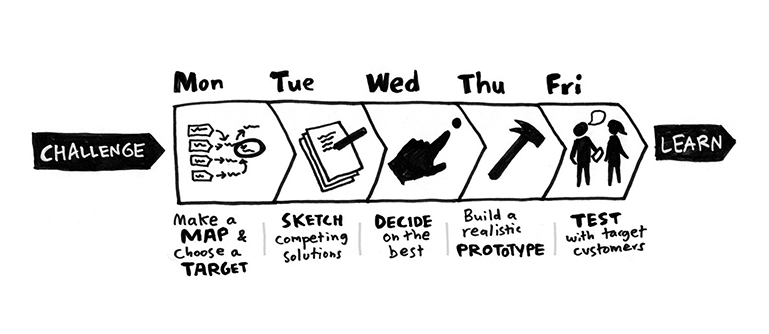
Get it here.
Yep, you guessed it. One of the designers in our team recommended this book to me.
Sprint is an awesome resource for learning the methodology for design sprints. To simplify the process, this book has great examples and a step-by-step guide you can follow.
This read takes you on the path of getting an idea to prototype as quickly as possible before moving onto testing it with real people.
The sprint methodology gets everyone creating and working together on a solution as a team. It pushes people out of their comfort zones and brings valuable perspectives from different team members. After all, nothing great was ever achieved within your comfort zone.
Why you should read it:
- You’re open to changing your design process for the better!
- You’re looking for a great resource to learn about the design sprint methodology.
- You’re looking for some practical and easy to follow tips to help you on your way.
Developer Tea by Jonathan Cutrell.
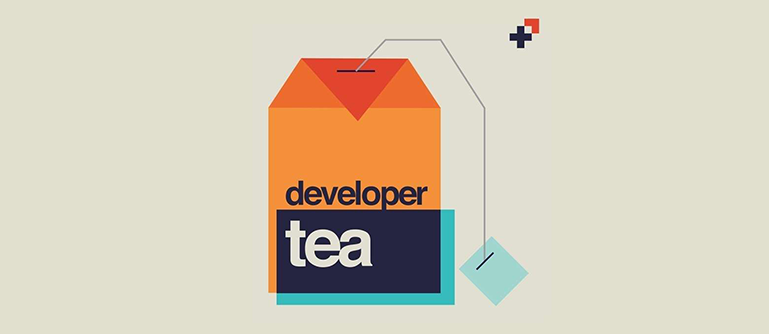
Listen to it here.
If you’re looking for a podcast that covers all things code (and more), give Developer Tea a listen during your next break. It covers everything from ‘how to be a better developer’ to ‘how to become a better person who also happens to develop’.
It’s ultimately a podcast that helps you improve your professional and personal career in code.
Developer Tea is a useful resource for improving your productivity and mindset, while also providing guidance on coaching and working within teams.
Why you should read it:
- It’s brief enough to fit into a tea (or coffee!) break, but thorough enough to be beneficial and actionable.
- The topic range is broad. Regardless of whether you’re a developer or not, you can learn to improve your own processes for the better…and learn about development along the way!
- There’s a community of over 4000 listeners you can share ideas with.
Panda
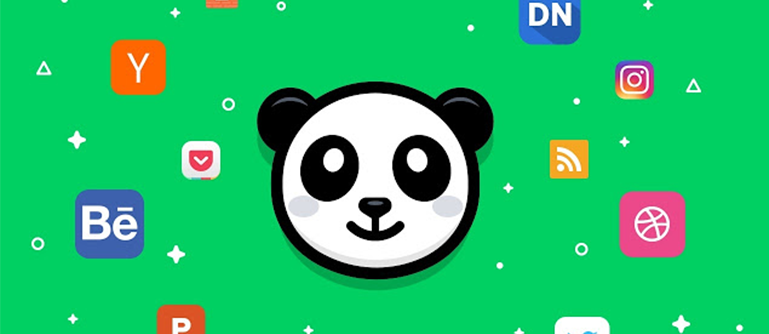
Get it here.
This nifty Chrome extension is an effortless way to stay abreast of real-time trends, content, and considerations relating to your work.
Even if you’re only passively or subconsciously being exposed to them, the conversations may become useful, inspiring, and thought-provoking.
It’s better being exposed to interesting conversations—even if you’re not a part of them—than sitting in silence.
Why you should download it:
- Because you can make Chrome work better for you.
- You can customise the trends and content you want to receive, so it’s a handy way to explore areas you’re already working on or would like to work on in the future.
- There’s a range of features available to help you customise the layout for easy browsing.
The Barefoot Investor by Scott Pape.
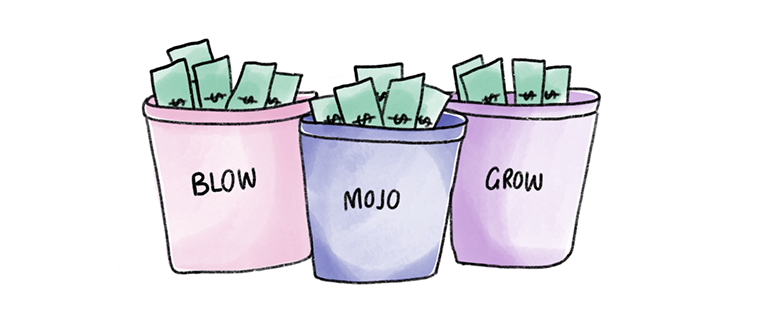
Get it here.
Probably one of the most well-known financial guides in the market for a while, The Barefoot Investor helps you sort out your financial life in a simple and actionable way.
It covers everything from setting up bank accounts to sorting out your super, buying a house, and getting a promotion.
This book made the recommendations list because of its popularity among the team.
It’s an approach that may not work for everyone, but the practical tips and the straightforward approach to saving has made it a popular read.
Why you should read it:
- It’s financial content made interesting and useful.
- Apply Scott’s tips to get your savings in order.
- This book will change how you view and use your money day to day and longer term.
Build your SaaS by 37Signals.
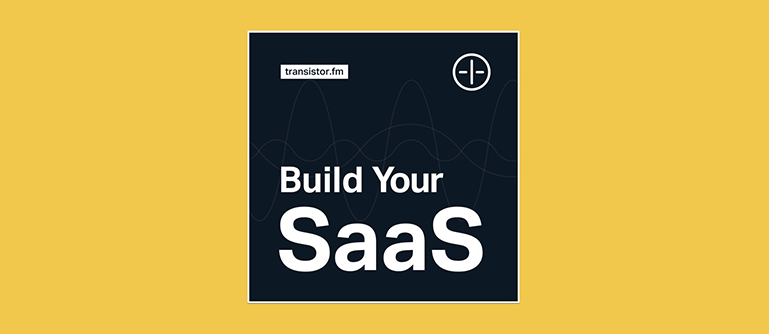
Listen to it here.
One of the developers recommended this podcast to me as a way to learn more about development, and hear from others who may be encountering similar challenges to us as we build our own products for market, try new ventures, and think bigger.
Ultimately, Jon and Justin talk about what it’s like to build an app in 2019. Truth be told, I didn’t think I’d enjoy this podcast as much as I do.
The episodes are a good length for a run or long walk, and the quality of the content and production is awesome. What I love most though, is that the content is real.
It’s not too jargon-heavy or dry. I listened to a recent episode that I thought was going to be tech heavy but turned out to be focused on the importance of SSL certificates.
While I know a little in this space, I certainly got plenty of information from the 50 minute podcast that I probably wouldn’t have known about any other way.
If you’re working in the industry, regardless of your role, I think you’ll appreciate this one in a big way.
What you should listen to it:
- Learn about someone else’s challenges that may be similar to your own.
- Be inspired by Jon and Justin’s persistence. It’s a nice reminder to never give up, never surrender.
- Learn some helpful hints about what to do when sh*t hits the fan.
Web API Design: Crafting Interfaces that Developers Love by Brian Mulloy.

Get it here (it’s free!).
This read is an intro to REST APIs and some best practices for URL structure and response handling. It’s a long read, and one that you might come back to time and again as a reference for a lot of your work.
Originally published back in 2012, this book introduced my developer teammate to API development. Seven years later, the core principles haven’t changed which is super helpful.
It’s also full of great examples so you won’t get bogged down just reading theory.
Why you should read it:
- You want to understand more about API design, especially the core principles.
- You want an easy to use reference guide you can keep coming back to in the future.
- You want to continue becoming a better developer.
The Obstacle is the Way by Ryan Holiday.
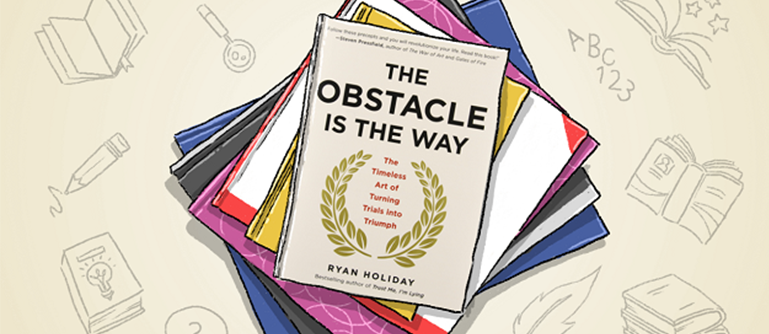
Get it here.
If you’ve read much by the Stoics such as Marcus Aurelius or Seneca, this book won’t be much of a surprise to you.
Holiday’s book has become widely known and appreciated for drawing on the timeless principles set out by Marcus Aurelius.
It’s an easy read or listen (the audio book is awesome, by the way) that you can keep coming back to every time you’re stuck, feeling like you need some inspiration, or just want to sit and think for a little while (and not scroll through your Instagram feed).
Listening to this book has brought me out of many dark places. It has helped me change my thinking and approach to so many interactions and situations in my life.
Yes, it can be confronting sometimes, but that’s the obstacle isn’t it?
Life isn’t about getting to the top of one mountain and then finding that you’re on a smooth sailing journey the rest of your days.
Life is a series of mountain climbs, some tougher than others, but all of them worth it and able to teach us something.
Why you should read it or listen to it:
- You’ll become a better human.
- You’ll find new ways to solve problems that don’t involve your ego.
- You’ll learn new techniques to not sweat the small stuff (or big stuff!).
Web Design for Babies by Code Babies Media.
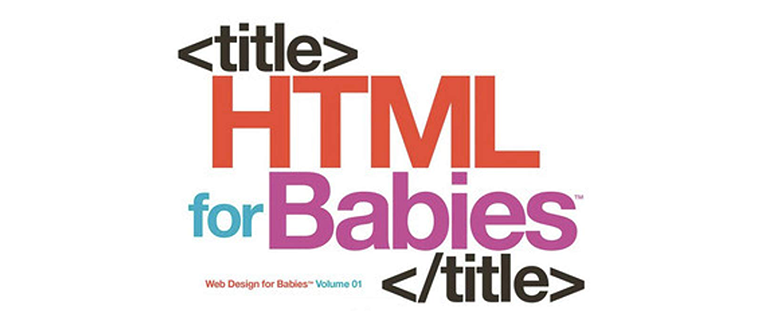
Get it here.
The team at Code Babies Media have created a book series for young children across web, design, and development.
They’re awesome. There’s a stack of pictures, interactive elements, and plenty of storytelling to help keep little ones engaged and following the narrative.
Start off with Web Design for Babies as an introduction for your young family and try out some of the others in the range—there’s even a C++ for Kids. Love it.
Why you should read it:
- Because you’re never too young to learn to code!
- You’ll get the chance to share something you enjoy with your little one.
- It’s part of a larger series that allows you to support budding skills as they grow over time.
***
I hope this list has been helpful and inspiring. I know I certainly have my reading time set for the next little while!
If you’ve read any of the list or are inspired to get started on some of them, let me know—I’m always keen to hear about reading adventures!
More Articles
Up for some more?
Get your monthly fix of August happenings and our curated Super8 delivered straight to your inbox.
Thanks for signing up.
Stay tuned, the next one isn't far away.
Return to the blog.
